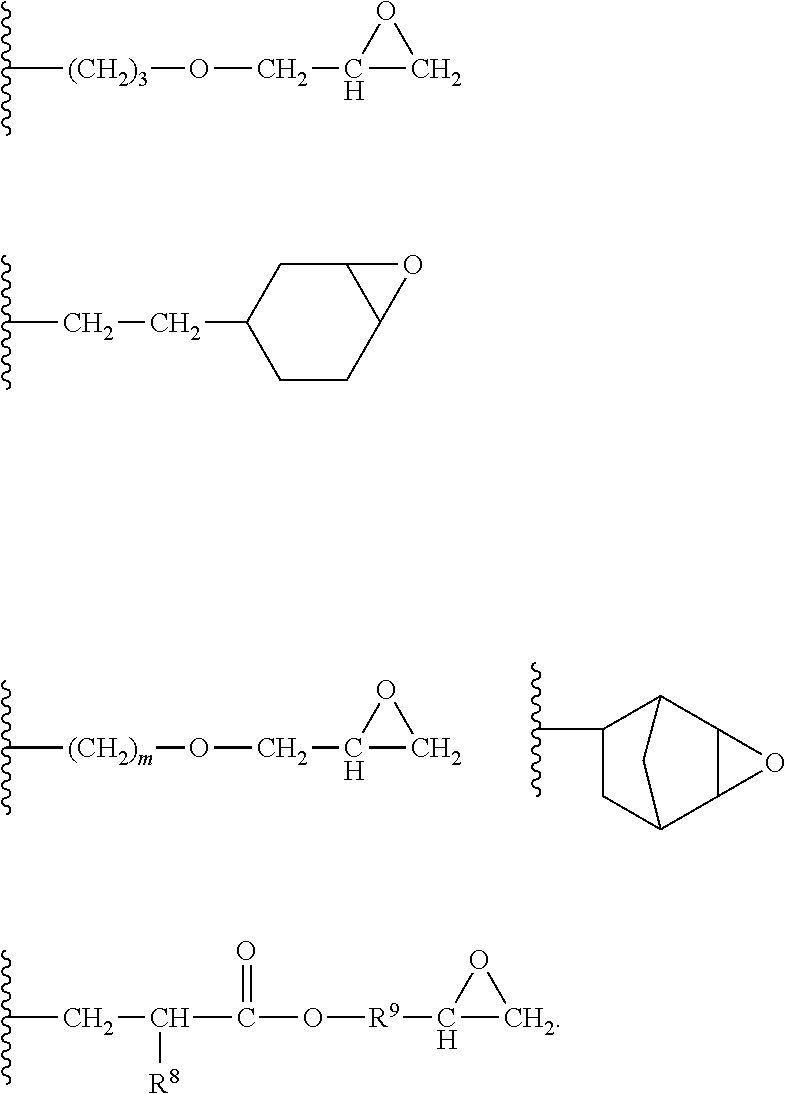Polysiloxanes having quaternary ammonium groups, method for producing same and use thereof in formulations for cleansing and care
a technology of polysiloxanes and ammonium groups, which is applied in the field of polysiloxanes having quaternary ammonium groups, can solve the problems of complex and expensive processes by which these compounds are prepared, and do not possess a pronounced silicone character, so as to achieve pleasant velvety-silky skin feel, enhance initial foaming, and outstanding conditioning effects on skin and hair
- Summary
- Abstract
- Description
- Claims
- Application Information
AI Technical Summary
Benefits of technology
Problems solved by technology
Method used
Image
Examples
working examples
[0107]In the examples set out below, the present invention is described by way of example for the purpose of illustrating the invention, without any intention that the invention, whose breadth of application is indicated by the overall description and the claims, should be confined to the embodiments stated in the examples. Where, in the text below, ranges, general formulae or classes of compound are specified, they are intended to encompass not only the corresponding ranges or groups of compounds that are explicitly mentioned, but also all subranges and subgroups of compounds which may be obtained by extracting individual values (ranges) or compounds. Where the present description cites documents, the intention is that their content should belong in full to the disclosure content of the present invention. Where the present invention describes compounds, such as organically modified polysiloxanes, for example, which can have different monomer units multiply, these units can occur in...
example 1
Formulating Example 1
Clear Shampoo
[0154]
TEXAPON ® NSO, Cognis, 28% form32.00%(INCI: Sodium Laureth Sulfate)Compound of example 10.50%Perfume0.50%Water57.50%TEGO ® Betain F 50, Evonik Goldschmidt8.00%GmbH, 38% form(INCI: Cocamidopropyl Betaine)ANTIL ® 171 Evonik Goldschmidt GmbH1.00%(INCI: PEG-18 Glyceryl Oleate / Cocoate)NaCl0.50%Preservativeq.s.
example 2
Formulating Example 2
Clear Conditioning Shampoo
[0155]
TEXAPON ® NSO, Cognis, 28% form32.00%(INCI: Sodium Laureth Sulfate)Compound of example 11.00%Perfume0.50%Water55.70%TEGO ® Cosmo C 100, Evonik Goldschmidt1.00%GmbH, (INCI: Creatine)Jaguar C-162, Rhodia0.30%(INCI: Hydroxypropyl GuarHydroxypropyltrimonium Chloride)TEGO ® Betain F 50, Evonik Goldschmidt8.00%GmbH, 38% form(INCI: Cocamidopropyl Betaine)NaCl1.50%Preservativeq.s.
PUM
| Property | Measurement | Unit |
|---|---|---|
| average molar mass | aaaaa | aaaaa |
| mass ratio | aaaaa | aaaaa |
| mass ratio | aaaaa | aaaaa |
Abstract
Description
Claims
Application Information
 Login to View More
Login to View More - R&D
- Intellectual Property
- Life Sciences
- Materials
- Tech Scout
- Unparalleled Data Quality
- Higher Quality Content
- 60% Fewer Hallucinations
Browse by: Latest US Patents, China's latest patents, Technical Efficacy Thesaurus, Application Domain, Technology Topic, Popular Technical Reports.
© 2025 PatSnap. All rights reserved.Legal|Privacy policy|Modern Slavery Act Transparency Statement|Sitemap|About US| Contact US: help@patsnap.com



